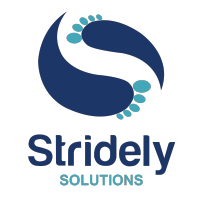Salesforce is a widely used cloud-based platform specializing in customer relationship management (CRM). Beyond CRM, it also provides a range of enterprise applications for customer service, marketing automation, and application development.
As the dominant player in the CRM market, Salesforce has significantly impacted businesses. Reports show that companies using Salesforce experienced a 27% increase in sales revenue, a 32% boost in lead conversion, a 34% improvement in customer satisfaction, and 56% faster deployment.
Given its extensive applications and cloud services, Salesforce is an integral part of many businesses. One of its most powerful offerings is Salesforce App Cloud, which provides developers with the tools needed to build custom applications. Some key tools within App Cloud include:
- Force.com – Enables admins and developers to build websites and integrate them with Salesforce.
- AppExchange – A marketplace for custom application development.
- Heroku – Provides flexibility to create apps using multiple programming languages.
- Salesforce Sandbox – Offers a safe environment for testing applications.
Among these, Salesforce AppExchange stands out as a powerful enterprise service for building and deploying custom apps tailored to business needs.
Also Read: Salesforce & SAP Integration – Advantages, challenges and How to Get Started
What is Salesforce AppExchange?
Launched in 2005, Salesforce AppExchange is a dedicated marketplace that allows businesses to expand their capabilities by integrating third-party applications and solutions with Salesforce. With over 5,000 apps, 90,000 customer reviews, and more than 6 million downloads, it is one of the largest ecosystems for business applications.
AppExchange hosts third-party apps, components, and solutions that seamlessly integrate with Salesforce, helping businesses enhance productivity and customize their CRM experience.
How Businesses Use Salesforce AppExchange
1. Retail & E-commerce
A large e-commerce company may use Salesforce Commerce Cloud alongside AppExchange plugins for:
- Inventory management (to sync stock levels across multiple platforms).
- AI-driven product recommendations for personalized shopping experiences.
- Order tracking and customer notifications integrated with CRM.
2. Healthcare & Life Sciences
Hospitals and pharmaceutical companies integrate AppExchange healthcare solutions to:
- Manage patient records and appointments securely.
- Automate compliance tracking for HIPAA regulations.
- Improve patient engagement through AI-driven chatbots.
3. Financial Services & Banking
Banks and investment firms rely on AppExchange solutions for:
- Regulatory compliance tracking to meet financial industry regulations.
- Risk assessment models powered by AI.
- Automated loan processing and customer onboarding workflows.
How to build and deploy apps with Salesforce AppExchange?
Before you begin developing an app on AppExchange, it’s essential to understand the three main types of applications:
- Integration Apps – These apps connect external software and services with Salesforce.
- FSM Apps (Field Service Management) – Stand-alone platforms that improve software functionality or introduce new services for customers.
- Augmented Functionality Apps – Apps that extend Salesforce’s core features.
Here are the steps that you should follow to create an app using AppExchange:
1. Join the Salesforce Partner Community
Start by joining the Salesforce Partner Community, where you can access best practices, webinars, and discussions to stay updated on tools and features. You’ll also receive a free development org to begin building your app.
2. Planning Your App
Define your app’s purpose, functionality, and target users. Choose between Salesforce Classic or Lightning and ensure your app meets Salesforce’s security standards before listing it on the marketplace.
3. Development and Packaging
Sign up for two separate organizations:
- Development Org (Dev_Org) – Used for coding and initial testing.
- Packaging Org (Package_Org) – Used to bundle and deploy your app.
4. Security Review Process
Salesforce has a strict security review policy to ensure customer data protection. Apps must pass this review before being listed on AppExchange. Utilize Salesforce’s security guides to meet compliance requirements.
5. Choosing a Deployment Model & Marketing Your App
Decide on a pricing model: freemium, premium, or trial-based. Offering free trials is an effective way to attract users and gather feedback. A well-structured marketing plan, including SEO-rich content, will help improve your app’s visibility.
6. Launching on AppExchange
Your AppExchange listing should be visually appealing and informative. Include high-quality images, screenshots, video demos, and an engaging product description to attract potential customers.
7. Customer Support & Licensing
Providing reliable post-launch support is crucial for maintaining customer satisfaction. Offer multiple licensing options to cater to different business needs.
Listing an app in AppExchange
Once your app is ready, list it on AppExchange with a detailed description, pricing, support information, and an explainer video. If you’re a Lightning Platform developer, AppExchange is the best place to publish your apps and connect with enterprises. You can also share research papers and whitepapers to showcase your app’s capabilities.
Also Read: Enhanced Organization’s sales cycles implementing CPQ in Salesforce
Build Salesforce Apps with us
Developing a custom app on Salesforce AppExchange can streamline business operations and enhance automation. Adoption of AppExchange is growing, with over 89% of Fortune 100 companies using at least one AppExchange app.
If your business is considering building and deploying apps on Salesforce, working with experienced professionals can ensure success. Consider consulting with Stridely Solutions and taking our services. Our team has years of experience in this domain and we have helped dozens of enterprises in Salesforce app development till the date.


